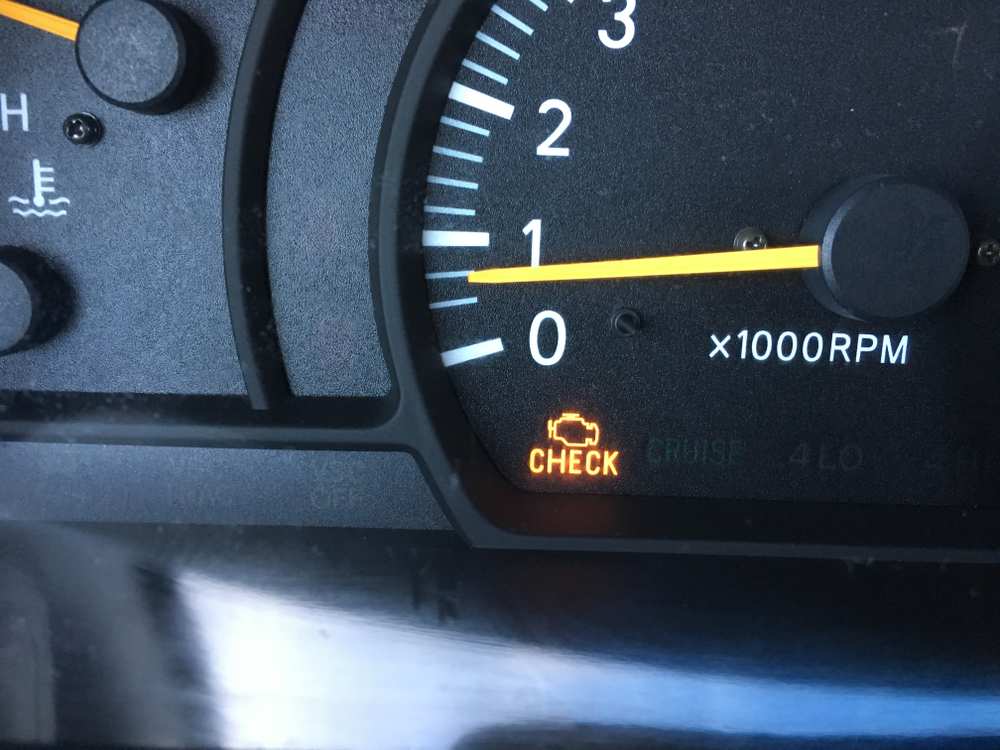
5 Common Reasons Why Your Check Engine Light Is On
Written by WebAdmin on January 19, 2019. Posted in Maintenance
It’s one of every car owner’s biggest nightmares– the check engine light has become illuminated in your dash. This is a sure sign of problems under the hood of your car, and it’s hard to know exactly how serious those problems are.
It could be a quick fix, or it could be a problem that leaves you stranded and costs you thousands of dollars unless it’s addressed quickly. Either way, it’s important to get to the bottom of the issue as soon as possible.
Here are 5 of the most common reasons your check engine light might be on.
1. Problem With Your Gas Cap
Of all the reasons your check engine light might be on, this one could be the easiest and least expensive to fix. In some vehicles, the check engine light comes on if the gas cap is missing, loose, or damaged.
Without the gas cap creating an appropriate seal for your fuel system, gas fumes can escape from your vehicle into the atmosphere. This evaporation causes you to lose fuel and have to fill up your vehicle more often.
2. Oxygen Sensor Malfunction
One of the most common reasons your check engine light may come on is that your oxygen sensor is failing. Your local auto repair shop in Western Washington can replace it for you quickly, which will restore your vehicle’s ability to measure unburned oxygen in its exhaust system.
Until you replace this part, your engine will burn more fuel than it really has to, which will reduce the vehicle’s fuel economy. A new oxygen sensor will also help you prevent damage to your catalytic converter and spark plugs.
3. Faulty Spark Plugs
Your spark plugs are responsible for igniting fuel in your vehicle’s combustion chamber. They get their spark from the ignition coil by way of the spark plug wires. A problem with either your spark plug wires or the spark plugs themselves could cause your check engine light to come on.
Ignoring this problem may lead to a clogged catalytic converter, damaged ignition coils, or problems with your oxygen sensor. Healthy spark plugs are also crucial to maintaining your vehicle’s power and fuel economy.
4. Bad Catalytic Converter
The catalytic converter normally fails after other engine problems have been ignored. If yours isn’t working, your vehicle will run hot, waste fuel, and stop performing as well as it used to.
You also need a functioning catalytic converter to pass an emissions test, since it’s responsible for reducing carbon monoxide emissions.
5. Failing Aftermarket Alarm
If you’ve recently had an aftermarket alarm added to your vehicle, that could be the reason your check engine light came on.
A failing product or bad installation can lead to a host of issues including failure to start the engine, a drained battery, and more.
Check Engine Light/ Diagnostics
Here at Greg’s Japanese Auto repair shop, we speak your car’s language and know the ins and outs of your vehicle. We specialize in working with these cars from Japan and Korea because we want to be your best bet for imported car service near Seattle.
We have eight locations all over the Puget Sound Region, ranging from Lynnwood all the way down to Puyallup. On the other side of Lake Washington, you can find us in Bellevue, Renton, and Covington. Come visit any of our auto repair locations in Western Washington, and we’ll help you determine exactly why your check engine light is on.
Image Credit: Shutterstock/Sheila Shelton
